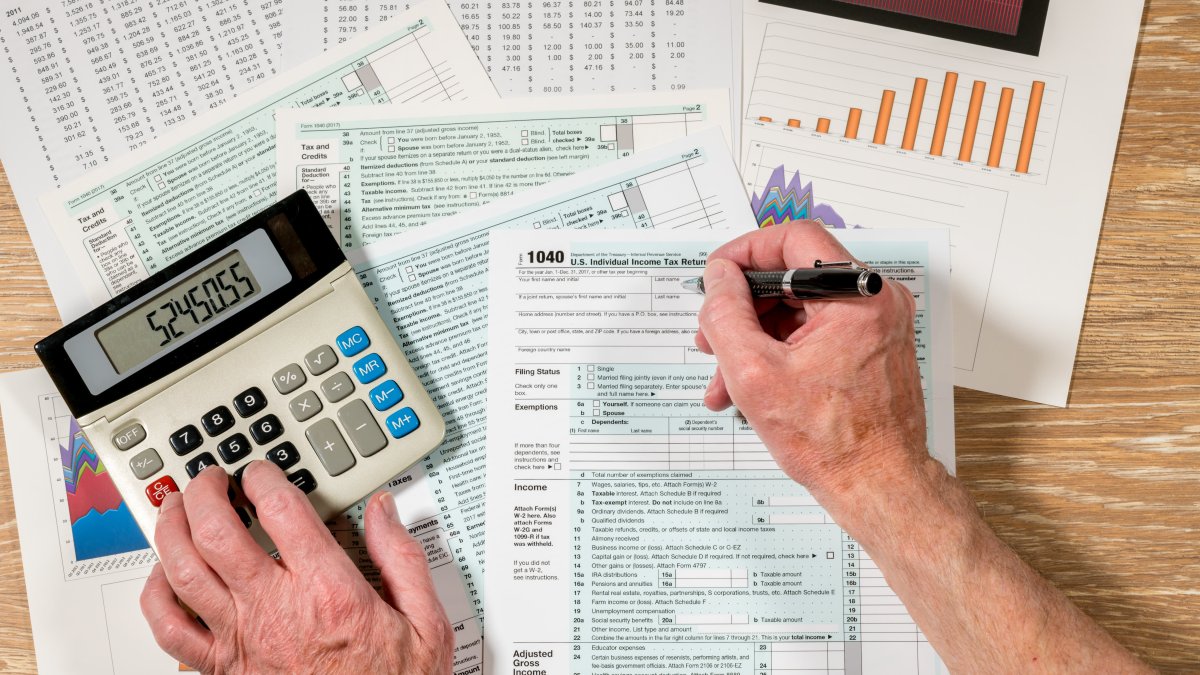NEW YORK — As the 2023 tax filing season heats up, the Internal Revenue Service (IRS) reminds taxpayers to gather the necessary information and visit IRS.gov for more information. 2022 tax return.
Here we share some recommendations from the IRS that it shared on Wednesday to consider when filing taxes.
Aspects to consider before declaring your taxes
Taxpayers should wait to file their return until they receive all applicable tax documents, or they risk making a mistake that could cause delays.
They should also carefully review your documents. If any information is inaccurate or missing, taxpayers should contact the payer immediately to have it corrected or to ensure that the issuer has your current mailing or email address.
Creating an IRS online account can help taxpayers securely access their federal tax account information, including payments, tax records, and more.
Organized tax records make it easier to prepare a complete and accurate tax return and can help taxpayers find missed deductions or credits.
Taxpayers with an Individual Tax Identification Number or ITIN may need to renew it if it has expired and is required on a US federal tax return. If they don’t renew an expired ITIN, the IRS may still accept your return, but may delay processing or any credit owed.
Changes to credits and deductions for the 2022 tax year
Unlike 2020 and 2021, there were no new stimulus payments for 2022, so taxpayers should not expect to receive an additional payment on their 2023 tax refund.
However, taxpayers can still benefit from the temporarily extended requirements for the Premium Tax Credit, a refundable credit that helps eligible individuals and families cover the premiums for their health insurance purchased through the Health Insurance Marketplace. To qualify for this credit, taxpayers must meet certain requirements and file a tax return using Form 8962, Premium Tax Credit.
Additionally, the criteria rules have changed for claiming the Clean Vehicle Credit under the Cut Inflation Act 2022.
Some tax credits have returned to their 2019 level. This means that taxpayers may receive a significantly lower refund than the previous tax year.
Changes include amounts for Earned Income Tax Credit (EITC), Child Tax Credit (CTC) and Child Care and Dependent Care Credit which will return to their original levels. before COVID.
- For the EITC, eligible taxpayers without children who received approximately $1,500 in 2021 will now receive $560 for the 2022 tax year.
- Those who received $3,600 per dependent in 2021 from the CTC will, if eligible, receive $2,000 per dependent for the 2022 tax year.
- The child and dependent care credit returns to its maximum of $2,100 in 2022 from $8,000 in 2021.
Finally, taxpayers who benefit from a standard deduction cannot benefit this year from a higher deduction for charitable contributions.
Transition year for Form 1099-K reporting
There are no changes to the taxation of income or the way tax is calculated, including income from the sale of personal property. Taxpayers must report all income on their tax return, unless excluded by law.
Form 1099-K, Third-Party Network and Payment Card Transactions, is an IRS information statement used to report certain payment transactions to improve voluntary tax compliance. Taxpayers use this information return along with their other tax records to properly determine their tax liability. Forms 1099-K must be provided by the payer by January 31, 2023.
The 2021 US bailout changed the notification threshold for third-party payment organizations (TPSOs), which include payment apps and online TPSOs. The new threshold requires the reporting of transactions over $600 per year, a change from the previous threshold of over $20,000 and over 200 transactions per year. TPSOs are required to report payments for goods and services.
Although the reduced Form 1099-K reporting requirement has been delayed for TPSOs, some individuals who have not received a Form 1099-K in the past may receive one. Some people may receive a Form 1099-K for the sale of personal items or in situations where they received a Form 1099-K in error (for transactions between friends and family or for shared expenses).
Money received as gifts or to reimburse potlucks or to pay rent should not be reported on a 1099-K. Payments should indicate whether they were for personal reasons for family or friends or a business transaction for goods and services.
If the information on a 1099-K is incorrect, taxpayers should contact the payer immediately. The name of the payer appears at the top left of the form. The taxpayer should keep a copy of all correspondence with the payer for their records.
If you receive a Form 1099-K in error and cannot get a corrected Form 1099-K, see Understanding Your Form 1099-K for updated guidance.

